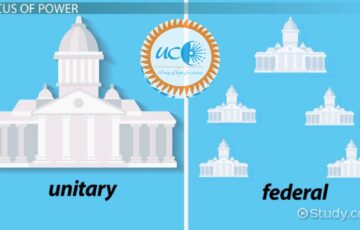Q. What are the various issues pertaining to functioning and performance of state legislatures in India? In this context, suggest some measures to make state assemblies more transparent and effective.
Approach:
- Briefly explain the function of the state legislature in India’s federal set up.
- Mention some key issues associated with their functioning and performance.
- Suggest some measures to make state assemblies more transparent and effective.
- Conclude accordingly.
Answer:
In India’s federal structure, the state legislatures perform the key function of framing laws related to the subjects under the state list such as public health, sanitation, public order, agriculture etc. However, their performance and functioning have been criticized owing to following issues besetting them:
- Less number of sittings:
Owing to no Constitutional obligation on mandatory number of days, the number of assembly sittings in India in recent times is abysmally low. States like Gujarat, Karnataka, U.P, and Delhi met for 33, 40, 17 and 21 days respectively in 2017.
- Lack of debates and discussions:
In most states, bills are passed with little or no discussion and are seldom referred to department related standing committees. Further, most bills are introduced and passed on the last day of each session.
- Issues with access to assembly proceedings:
While some states such as Karnataka, Delhi and Rajasthan host the texts of legislative debates on their assembly websites, many such as Gujarat and West Bengal don’t. With such opacity, citizens cannot hold government departments, ministers or MLAs accountable for their work and promises on the floor of assembly.
- Lack of public participation in law making:
Unlike the Centre, where draft bills are often shared on public platforms for suggestions, the process of conceiving, deliberating and passing of state laws is rather obscure and lacks inclusiveness.
In this context, some measures that can be taken to make state assemblies more transparent and effective are:
- Live telecast of all proceedings of state assemblies:
It will enhance accountability by ensuring that the performance of state assembly is monitored by citizens in real time, thereby, improving the quality of legislation and debates on matters of public importance.
- Access to legislative processes:
Mandatory disclosure of the text of legislative debates and questions on assembly websites by all states under the RTI Act, 2005.
- All government resolutions at the state level, including assembly resolutions should be translated into English and made available along with vernacular language of the state to ensure more readability, increasing more civic and media engagement with state policies and actions.
- Ensure involvement of various stakeholders and beneficiaries during drafting of state laws.
- Fix minimum number of sitting:
Constitutional amendments to fix the number of days the state assemblies must sit in a year can enhance their performance.
A serious thought is needed to reinvigorate these pillars of democracy and provide elected representatives with the opportunity to exercise their right to legislative scrutiny, hold the government accountable and represent their constituents effectively.







